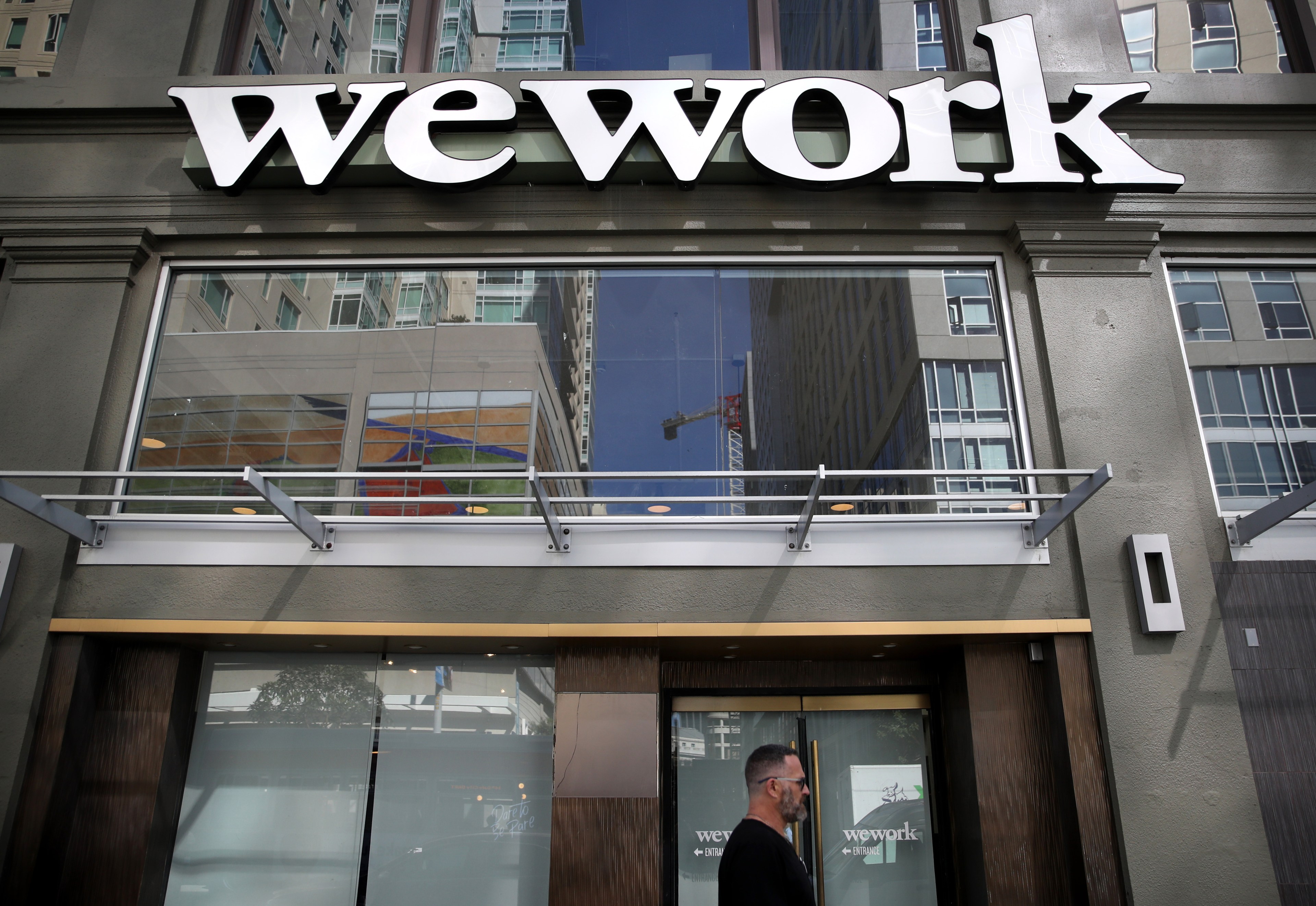WeWork is in tremendously poor shape, and its challenges could continue to pull down a struggling San Francisco office market.
Shares in the coworking company plummeted to a record low Wednesday, eventually closing at $1.22—a 98% drop from the start of 2023. WeWork’s tanking value comes a day after the Wall Street Journal reported that the company would file for Chapter 11 bankruptcy as early as next week.
Also, earlier this week, the company announced it would hold off on interest payments on around $6.4 million of debt to balance its financials. A 30-day grace period is currently in effect.
A representative for the company did not respond to a request for comment.
The news of the coworking giant’s downfall, however, isn’t exactly a surprise. As recently as August, WeWork leaders suggested in an earnings report that there was the “existence of substantial doubt regarding its ability to continue as a going concern.” By that point, the company had reported a staggering $2.9 billion in long-term debt and $13 billion in long-term leases.
Newly appointed CEO David Tolley assured shareholders in a September letter that WeWork would hedge off some of its titanic property obligations and “renegotiate nearly all [its] leases.” That came as unwelcome news for its landlords, already facing a mass downturn in the office market. A bankruptcy filing would allow WeWork to terminate the vast majority of its leases
In light of WeWork’s reportedly impending bankruptcy filing, The Standard took a closer look at the co-working company’s current real estate holdings in San Francisco:
- Lenders sued to foreclose on 600 California St., owned by an affiliate of WeWork, after claiming the company fell behind on a $240 million loan.
- A lawsuit was filed against WeWork in August by its landlords at 430 California St., Kennedy Wilson and Takenaka, after the co-working company defaulted on a 250,000-square-foot space five years after signing the lease.
- At 2 Embarcadero Center, owned by Boston Properties, WeWork leases 118,000 square feet, around 15% of the building’s floor space. The building is currently 86.9% leased, according to regulatory filings.
- At 535 Mission St., owned by Boston Properties, WeWork leases 114,000 square feet, around 37% of the building’s floor space. The building is currently 97.9% leased, according to regulatory filings.
- At 44 Montgomery St., owned by Beacon Capital, WeWork leases 114,000 square feet, around 15% of the building’s floor space.
- At Salesforce Tower, owned by Boston Properties, WeWork leases 76,000 square feet, around 5.5% of the building’s floor space. The building is currently 100% leased, according to regulatory filings.
- At 201 Spear St., WeWork leases 73,000 square feet, around 31% of the building’s floor space. Owner KBS Realty Advisors reported in a July regulatory filing that it is considering surrendering the property to its lenders. KBS valued the building at $70.1 million, a 41% haircut from its 2013 purchase price, and said occupancy would drop to 35% with WeWork’s departure.
- At 650 California St. owned by Columbia Property Trust, WeWork leases around 60,000 square feet, around 13% of its floor space. In February, Columbia defaulted on $1.7 billion in loans tied to a portfolio of seven office buildings, including 650 California.
WeWork’s current state is a far cry from the start of 2019, when the company raised a massive $1 billion Series H venture funding round led by SoftBank that valued it at $47 billion.
In the ensuing years, the company survived an increasing array of scandals and lawsuits, a revolving door of top executives, pandemic-era economic challenges and the release of an Apple TV+ series about the company’s rise and fall.
